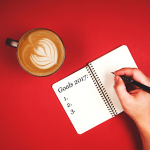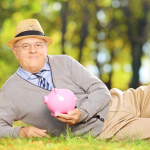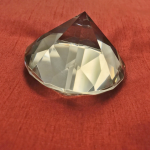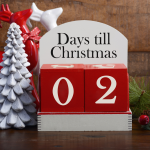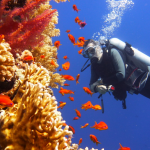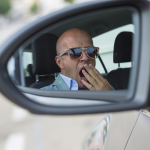2016 was a year to forget. A rough-and-tumble election, partisan rhetoric and "fake news," and the loss of many beloved and talented people -- from Prince to Carrie Fisher -- made this calendar cycle a bit more difficult than most. Surely, 2017 must have something better in store.
To ensure that it does, we all must resolve to make it so. And as a science journalist, I can do my part by adopting these four resolutions. I hope other journalists join me.
Other Science News
“At the moment, Careline users who fall at home have to wait for a paramedic to help them. But under the new policy, Careline staff will go to their aid and get the user sitting up and assess the situation before an ambulance is called, in a bid to cut the number of call-outs to falls paramedics receive.”
In the last week, the Center for Medicare and Medicaid Services (CMS) initiated a demonstration project involving the bundling of care for two new diagnostic categories. First, acute myocardial infarctions (AMI) – heart attacks including their medical and minimally invasive treatment (coronary artery angioplasty and stents) and second, coronary artery bypass grafting (CABG) – surgery to improve/restore circulation to the heart arteries.
And I should care why? ... the presumptive new Health and Human Services Secretary is expected to cancel the demonstration, but it is more important to look at the underlying economics CMS envisions because they are the savings part of Obamacare.
Representing a cross between brilliant engineering and maximum product efficiency, in which the smallest particles of a valuable substance are put to extraordinary use, a team of scientists has created electrical wiring from the absolute smallest pieces of diamonds.
How small, you ask?
The researchers used material called "diamondoids" – microscopic dust if you will, called "cages," that contain hydrogen and just 10 carbon atoms.
On the First Day of Christmas, ACSH gave to me... The End of the NRDC
On the Second Day of Christmas, ACSH gave to me... Two Killer Coffees
On the Third Day of Christmas, ACSH gave to me... Three French Fries
On the Fourth Day of Christmas, ACSH gave to me... Four Science Quacks
On the 12th Day of Christmas ACSH gave to me 12 swimmers cupping....
Borrowing a traditions from the Chinese, 2016 could be rightly be called "The Year of the Joint." Restrictions on marijuana are melting away in individual states, but not at the federal level. The Council weighed in on this, and more.
Dipping a toe into the waters of dental issues associated with scuba diving, a DDS-to-be wants to alert divers to the fact that taking the plunge can exacerbate problems with unhealthy teeth and loose fillings.
The researcher, a student in the University of Buffalo School of Dental Medicine, began a small survey of divers on a personal instinct that underwater conditions worsen existing dental problems.
The curiosity of the student, Vinisha Ranna, Bachelor of Dental Surgery, deepened after her own underwater excursion three years ago, when she experienced a "squeezing sensation in her teeth, a condition known as barodontalgia." And when Ms. Ranna subsequently found that there wasn't much clinical research previously done, she decided to dive into the topic herself.
Standing on the doorstep of 2017, we can only wonder which anti-science voices will be the loudest next year, as we consider how best to debunk their anti-science messages.
Here at ACSH, we cover nearly every topic under the sun related to biomedicine, chemistry, health, epidemiology, and sports science.
We are sometimes surprised to learn which articles are most popular with our readers. This year, our work on herpes vaccines resonated across the globe. In fact, one of them was the most popular article we wrote all year! (Kudos to Dr. Josh Bloom.)
So, in case you missed them, here are the ten most popular articles we wrote in 2016 (yes, including two on herpes):
#1. A Vaccine For Herpes Erupts In The News
You swear you were sooo careful last year but nevertheless, the tangled Christmas lights prevail. It's knot science, and here's why!
We applaud the AAA Foundation for Traffic Safety for its recent report highlighting the dangers of sleep-deprived driving. However, when one sees how the sleep data was gathered, uncertainty about its accuracy – as well as the study's corresponding conclusions on crash rates – creates some doubt.
